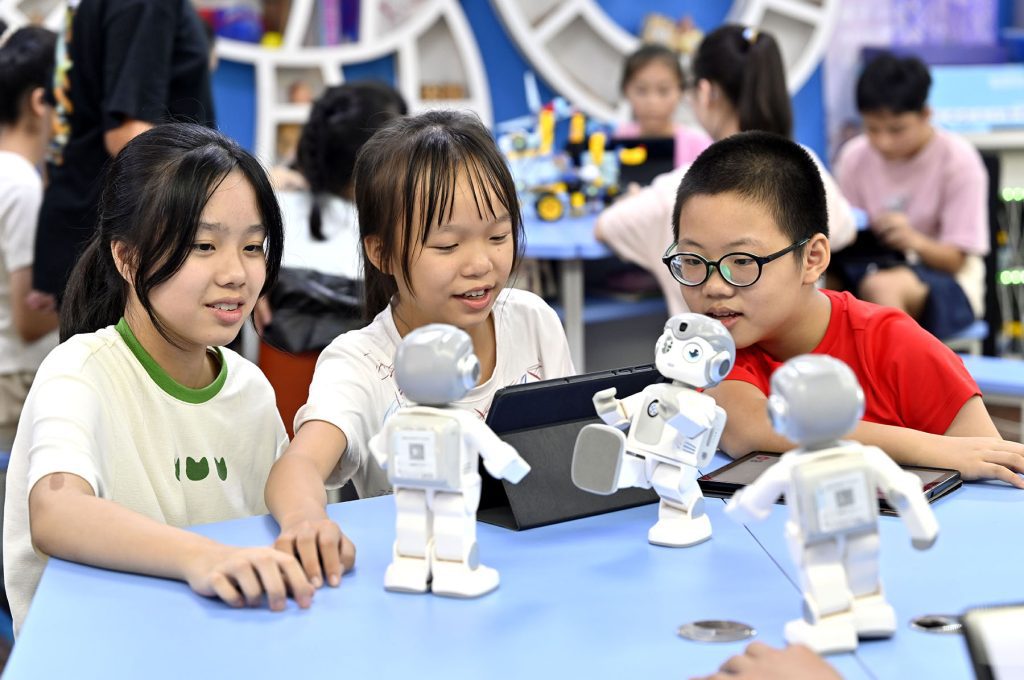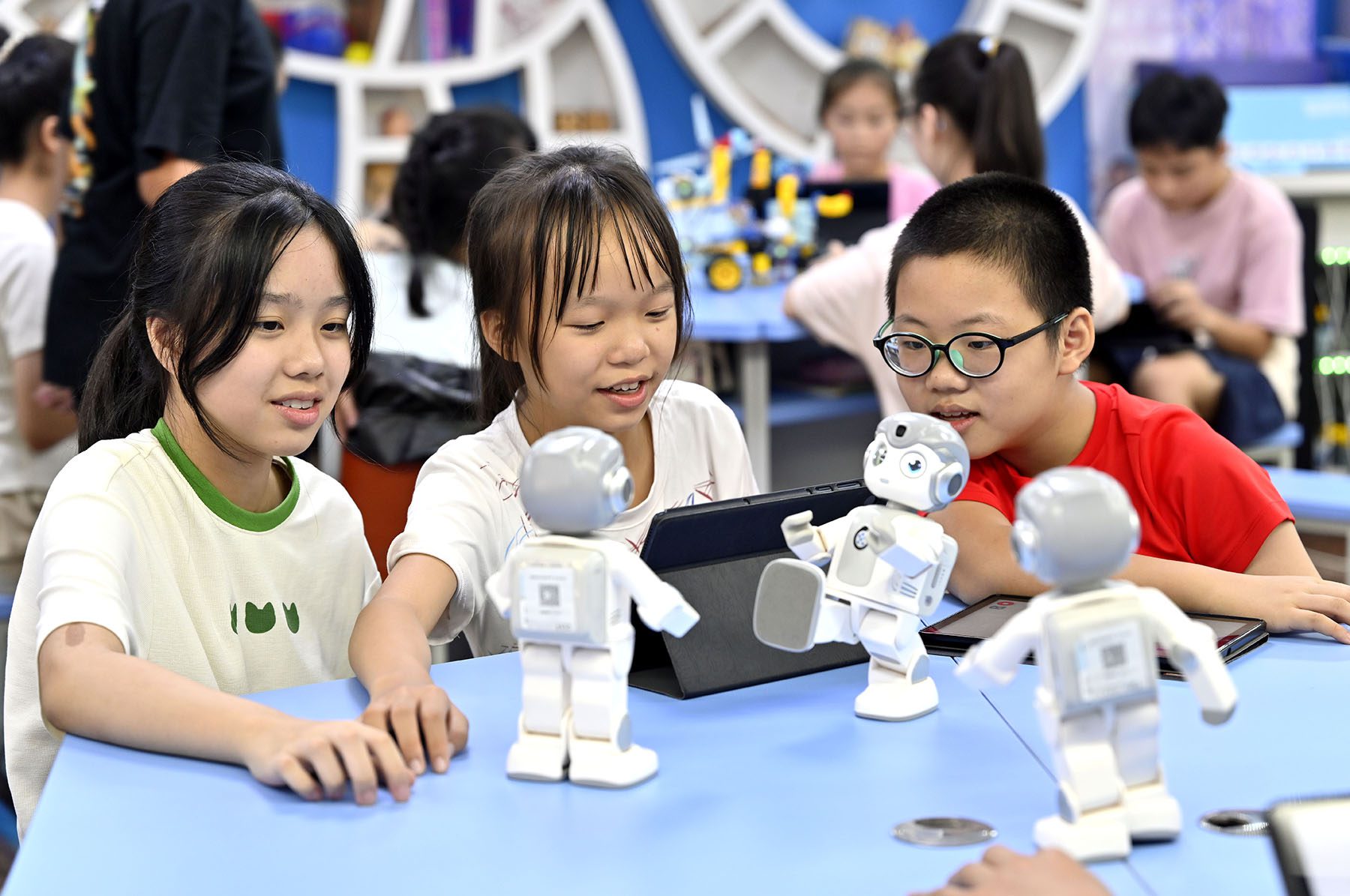Hangzhou has made artificial intelligence (AI) classes compulsory in schools, reflecting China’s nationwide push to lead in AI education, innovation, and global technological competition.

China has taken another bold step in its artificial intelligence (AI) strategy, making AI classes compulsory in schools across the city of Hangzhou. The move is part of a nationwide education push that aims to train a generation of students equipped with the skills needed to thrive in the global AI race.
Hangzhou as a National AI Pioneer
Hangzhou, home to tech giant Alibaba, has long been at the center of China’s digital innovation. The city has now become a testbed for AI education, with local authorities introducing mandatory AI curricula in primary and secondary schools.
The courses will cover machine learning, robotics, algorithmic thinking, and ethical AI principles, preparing students from a young age to navigate the technological future. By embedding AI into everyday education, Hangzhou hopes to set the standard for other Chinese cities.
Nationwide Strategy for AI Dominance
This initiative reflects Beijing’s national strategy to make China the world leader in AI by 2030. The Chinese government has already invested heavily in AI research centers, startups, and university programs. Now, by targeting schools, China is building a talent pipeline from the ground up.
Experts say this early exposure will ensure that future engineers, scientists, and policymakers are deeply familiar with AI’s opportunities and risks. It also reflects China’s long-term approach to securing its position in the global technology race against the United States and Europe.
Balancing Innovation and Ethics
While the push highlights China’s technological ambitions, it also raises questions about AI ethics and control. Critics argue that state-led AI education may focus more on technological power than on open debate and ethical use.
Nevertheless, Hangzhou officials emphasize that ethical concerns, including bias, surveillance, and responsible AI use, are part of the new curriculum. This is a crucial step as China faces international scrutiny over its AI-driven surveillance systems and data policies.
AI in Classrooms: Global Implications
China is not alone in exploring AI in education. Countries such as the United States, South Korea, and Singapore are also integrating AI literacy into their schools. However, China’s approach is unique in its scale and speed.
By mandating AI education nationwide, China may outpace global competitors in cultivating an AI-literate population. For the global tech industry, this shift means increased competition but also opportunities for collaboration.
Preparing a Generation for the Future
For students in Hangzhou, AI education is no longer optional—it is part of their daily classroom experience. From coding small robots to understanding neural networks, they are being prepared to shape industries of the future such as healthcare, finance, manufacturing, and defense.
Hangzhou’s initiative could soon spread to Beijing, Shanghai, and Shenzhen, further cementing China’s role as a global AI powerhouse. As the world watches, this push may redefine not only how nations prepare for the AI revolution but also how societies grapple with its ethical challenges.









Comments are closed.